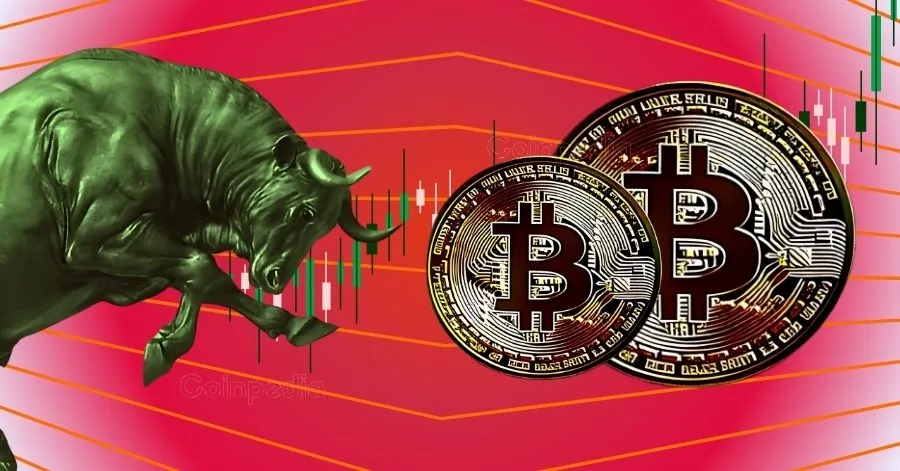Navigating Bitcoin’s Geopolitical Landscape: U.S. Strategy Amid China’s Crypto Aversion
The recent remarks by U.S. Vice President JD Vance have stirred renewed interest in the strategic role Bitcoin could play in the geopolitical rivalry between the United States and China. His declarations at a major Bitcoin conference highlight a shift from viewing Bitcoin merely as a speculative asset toward recognizing its broader implications for economic security and global influence. This evolving stance invites an exploration of the contrasting approaches by these two powers and the potential consequences for digital finance and national security.
Understanding China’s Staunch Opposition to Bitcoin
China’s position on Bitcoin is marked by consistent opposition, culminating in a comprehensive ban on cryptocurrency trading and mining since 2021. This strict regulatory posture emerges from multiple concerns: financial stability risks, capital flight control, and the desire to maintain supremacy over digital currency initiatives like its own central bank digital currency (CBDC).
China’s “love-hate” relationship with blockchain technology, as identified by experts, reflects this nuanced stance. While the country embraces blockchain’s potential for innovation, its hostility toward decentralized cryptocurrencies ostensibly aims to mitigate risks to its tightly controlled financial system and preserve governmental authority. This crackdown has forced a mass migration of Bitcoin mining operations to jurisdictions with friendlier regulatory environments, including the United States, Russia, and Kazakhstan.
U.S. Embracement of Bitcoin as a Strategic Asset
In stark contrast, U.S. leaders like Vice President Vance advocate embracing Bitcoin not only as an investment but as a tool of strategic leverage. Vance’s speech at a Las Vegas Bitcoin conference frames Bitcoin as integral to maintaining American global technological edge and financial sovereignty, especially in light of China’s obstinance. He positions Bitcoin as a means to exploit China’s crypto abstinence to America’s advantage, thus reshaping global leadership in digital assets.
The U.S. currently hosts approximately 35% of the global Bitcoin mining hashrate, making it the world leader post-China’s exit. This shift enhances America’s control over a critical segment of the Bitcoin network’s infrastructure, potentially translating into stronger influence over the future evolution of digital currencies. Moreover, figures like former President Donald Trump have echoed calls to develop domestic Bitcoin “stockpiles” and promote “Made in USA” mining operations, underscoring a nationalistic undertone in Bitcoin policy.
Political and Economic Implications of Bitcoin Adoption
Vance’s exhortation extends beyond rhetoric, urging the crypto industry to deepen its political engagement within the U.S. to help shape favorable regulatory frameworks. This call signals an understanding that the industry’s participation in policymaking is vital for fostering innovation and securing America’s competitive edge.
From an economic perspective, Bitcoin’s role as a hedge against inflation and policy missteps is gaining traction, particularly among conservative political leaders. By fostering a regulatory environment conducive to crypto enterprise growth, the U.S. aims to solidify its position in a rapidly transforming financial landscape. This strategy might encourage technological advancements and diversify U.S. financial instruments in ways that reduce dependence on traditional fiat currencies vulnerable to geopolitical tensions.
Tensions and Tit-for-Tat Dynamics with China
However, this competitive posture has not gone unnoticed by China. Retaliatory economic measures, including tariff hikes, have escalated in response to high-profile U.S. rhetoric and policies perceived as antagonistic. For instance, after Vance’s controversial remarks, China enacted significant levies on U.S. goods, intensifying trade frictions.
Meanwhile, Chinese officials continue to ridicule U.S. political figures on social media and propagate narratives aimed at undermining American positions, blending diplomatic hostility with cultural mockery. These interactions underscore how intertwined economic policy and public diplomacy have become in the digital age, with Bitcoin becoming a symbolic battlefield within broader U.S.-China rivalries.
The Future of Bitcoin in U.S.-China Relations
The divergent stances on Bitcoin highlight a broader contest for technological supremacy, economic control, and visionary leadership in the emerging digital economy. Should the U.S. successfully capitalize on its growing dominance in Bitcoin mining and regulatory progressiveness, it could establish itself as a pioneer in digital financial systems, influencing global standards and practices.
Conversely, China’s emphasis on a state-controlled alternative via its CBDC platforms reflects its continued preference for centralized digital control, which may limit its influence over the decentralized cryptocurrency ecosystem. This dichotomy creates fertile ground for competitive innovation but also risk for geopolitical instability if financial technologies are weaponized within trade conflicts or broader strategic confrontations.
Conclusion: Bitcoin as a Frontline in a New Kind of Geopolitical Rivalry
Vice President JD Vance’s advocacy symbolizes a pivotal moment in U.S. policymaking, where digital currency is recognized as a strategic asset with implications reaching far beyond markets. By embracing Bitcoin as part of national strategy, America seeks not just financial opportunities but a critical edge in the ongoing global power contest with China. The outcome will depend on how effectively the U.S. balances innovation, regulation, and international diplomacy while navigating the complex interplay of technology and geopolitics.
Bitcoin’s trajectory may well become a defining feature of 21st-century economic and security policy — a digital frontier where technological leadership and ideological values converge to shape the new global order.




